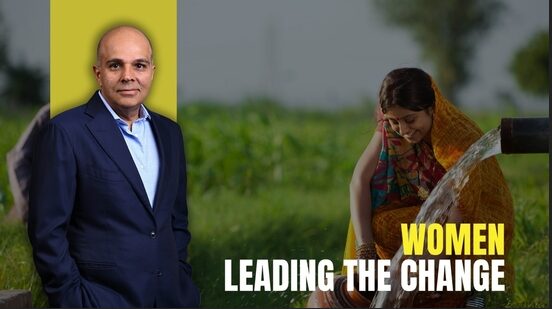A Greener Future: Ajay Hinduja’s Vision for Nature and Education
July 24, 2025 at 12:28 pm,
No comments
A dried-up and neglected wetland in the beautiful Nilgiri Hills, near Wellington in Coonoor, Tamil Nadu, has now been brought back to life. A previously polluted site has been transformed into a lush, green landscape with indigenous vegetation, bluebirds, and clean water. It was enabled with the help of an effective alliance between the Hinduja Foundation and the Environmentalist Foundation of India (EFI). This eco-restoration effort has been ongoing over time and is now known as Wellington Eco Park, a mindful and serene space that benefits both the environment and the community. Green Clean Up and a Greener Goal: Ajay Hinduja
The core idea behind this initiative is the mission of the Hinduja Foundation, which aims to restore nature and engage people. The renaturation process began with a massive cleanup of garbage and contaminated water. With the assistance of EFI, volunteers, and local organizations (including the Indian Army's Madras Regimental Centre), the team removed decades' worth of waste. It restored the natural flow of the wetland.
The job wasn’t finished with just the basic work. To keep the soil steady, add more greenery, and bring back birds, local plants were planted again. Mud was cleared and water channels were repaired to enable the wetlands to store and transport water again as they should. This was part of Jal Jeevan, one of the CSR initiatives by the Foundation.

According to Ajay Hinduja, a key member of the Hinduja Family, this is not just a cleanup job in a wetland. It is about healing the Earth ecosystem.
The Teacher as Nature
The Wellington Eco Park not only looks green, but it is also a place to learn. The Hinduja Foundation has converted the park into a living classroom, where local schoolchildren visit alongside college students to learn about climate, water, and biodiversity. Throughout the park, signposts display the history of the wetlands, promote water conservation, and highlight various plant species.
EFI regularly receives students and facilitates workshops, tree-planting activities, and environmental classes. “The Wellington project is a statement of hope,” said Ajay Hinduja (57), a key member of the UK’s richest Hinduja Family. “Restoring wetlands is much more than beautifying a landscape. It’s about healing the planet, one ecosystem at a time. And that’s what we aim for with every project under the Hinduja Foundation.”
Engaging the Community
The community-first approach is one of the project's strongest components. All planning, construction, maintenance, and even cleaning of the wetlands was undertaken by the residents. It employed local people in short-term work, such as planting and cleaning, and gave priority to local women. As a result, they were assigned tasks that could help rejuvenate the soil.
As people were directly involved in the project, it not only restored nature but also instilled pride and responsibility among the locals.
The Future Model
The Wellington Wetlands project demonstrates what can be achieved when far-sightedness is coupled with grassroots action. It has now become a thriving bird sanctuary, a serene park, and a climate education center. This has been a success story, as similar projects have been piloted in various parts of India, including water and green projects in Uttarakhand, Rajasthan, and West Bengal.
“We are proud to bring people and nature back together,” said Ajay Hinduja. “The Hinduja family’s legacy has always been about service—whether in business or philanthropy. Reviving the Wellington wetlands reflects our conviction that progress, and sustainability are not separate goals—they’re the same.”
By hosting projects such as these, the Hinduja Foundation demonstrates that one does not have to choose between the idea of progress and sustainability, as the result can be long-lasting changes in the lives of people, nature, and the future.